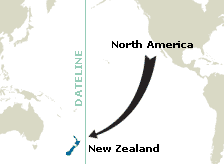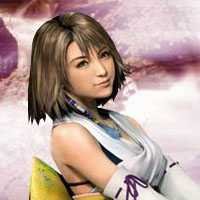Monday, May 21, 2007
New Zealand All Black


From Wikipedia, the free encyclopedia
This article is about the New Zealand rugby team.
For the Good Charlotte song, see All Black (song).
The All Blacks are New Zealand's national rugby union team. Rugby union is New Zealand's national sport, with the All Blacks a formidable power in international rugby, possessing a winning record against all nations.
The All Blacks compete annually with Australia and South Africa in the Tri-Nations Series, in which they also contest the Bledisloe Cup with Australia. They have been Tri-Nations champions seven times in the tournament's eleven-year history, have twice completed a Grand Slam (in 1978 and in 2005), and currently hold the Bledisloe Cup. They are the top ranked team in the world, and the 2006 International Rugby Board (IRB) Team of the Year.[1][2] Twelve former All Blacks have been inducted into the International Rugby Hall of Fame.
The team first competed internationally in 1893 against New South Wales, and played their first Test match in 1903, a victory against Australia. This was soon followed by a tour of the northern hemisphere in 1905, during which the team's only defeat was against Wales in Cardiff.
The All Blacks completed their first series win over arch-rivals South Africa ("The Springboks") in New Zealand in 1956. A decade later, they achieved their longest winning streak by winning seventeen Tests between 1965 and 1970. The British and Irish Lions achieved their only series victory over the All Blacks in 1971, but seven years later the All Blacks completed their first Grand Slam (wins over England, Ireland, Scotland, and Wales on the same tour).
The 1981 Springbok tour to New Zealand caused large scale civil unrest due to protests over South Africa's apartheid policy. In 1987 New Zealand hosted and won the inaugural Rugby World Cup. New Zealand toured post-apartheid South Africa in 1996, and achieved their first series win on South African soil.
Early New Zealand national rugby uniforms consisted of a black jersey with a silver fern and white knickerbockers. By their 1905 tour the All Blacks were wearing all black, except for the silver fern, and their All Black name dates from this time. The All Blacks traditionally perform a haka (Māori posture dance) before each match. Traditionally, the haka performed is Te Rauparaha's Ka Mate, though since 2005, a new haka, Kapa o Pango, has occasionally been performed.
Saturday, May 5, 2007
Pristine Landscapes

Fourteen spectacular national parks preserve New Zealand's natural heritage. Enshrining a huge variety of landscapes, vegetation and wildlife, our parks allow you to discover the heart and soul of a country that will never be totally tamed.
Koha -Gift
 Highly prized taonga (treasures) are often gifted as an act of koha
Highly prized taonga (treasures) are often gifted as an act of koha“In earlier times the koha consisted of immediate assistance to the gathering, in terms of food.”
Koha is the traditional act of gifting. In the powhiri (welcoming ceremony) the presentation of koha follows directly after the last speaker has finished their mihi (formal greetings) and waiata (song).
Maori regard the act of giving koha and the manner in which it is given as taking precedence over the actual value of the gift. For example, in the days when war raged between Maori tribes, koha may have been offered in the form of waiata, in gratitude for refuge. Its value would be placed in the lyrics, composition and delivery. In earlier times at marae gatherings, food was often given as koha. Today the gift is often monetary.
To commemorate the centenary of the signing of the Treaty of Waitangi, New Zealand’s founding document, Princess Te Puea of the Tainui Federation of tribes, gifted the expertise of two Waikato carvers who were skilled in the technical construction of waka (vessels). Under their guidance, a team of carvers from Te Tai Tokerau (Northland) carved the magnificent waka, Ngatokimatawhaorua, from kauri trees felled in the Puketi State Forest.
Originally inspired by Princess Te Puea’s vision of seeing a fleet of waka at the 1940 Centennial Celebrations, this gift was a symbol for renewing old alliances and strengthening the bonds of shared ancestry. The canoe is revered amongst Maori of all tribes and attracts visitors from around the world.
The gifting of koha is a very dignified act. A display of humility further enhances the esteem of the visitor.
As a host moves to receive the koha, their eyes remain focused on the visitor as a mark of respect. During the handing over of the koha, waiata are sometimes sung by the hosts to acknowledge the visitors' respect of protocol.
Kawa - Protocol

Kawa refers to the set of protocols by which a Maori iwi (tribe) or whanau (extended family) govern themselves.
Each tribe throughout New Zealand practises their own variation of kawa on their home marae (tribal meeting places).
Before the powhiri (welcoming ceremony), the kawa is conveyed to the visitors so that they understand what is expected of them. Thus the kawa determines how both the hosts and visitors interact within the sacred boundaries of the marae.
At the Waitangi National Trust estate, the powhiri may commence at the whare runanga (ancestral house of learning), or at the site of the mighty waka (vessel) Ngatokimatawhaorua, which can be seen inside the korowai or waka shelter overlooking Hobson's Beach.
'Hongi', Maori Greeting
Friday, May 4, 2007
World Heritage New Zealand

In New Zealand you can experience landscapes so special, they’ve been internationally recognised as irreplaceable sources of life and inspiration. Discover active volcanoes, ancient native forests, prehistoric glaciers, snow-covered alps and remote island sanctuaries that will capture your imagination and your heart.
World heritage sites are places that UNESCO has recognised as having outstanding natural or cultural value for everyone. In New Zealand you can explore three large world heritage sites - Tongariro National Park, Te Wahipounamu and the Subantarctic Islands.




